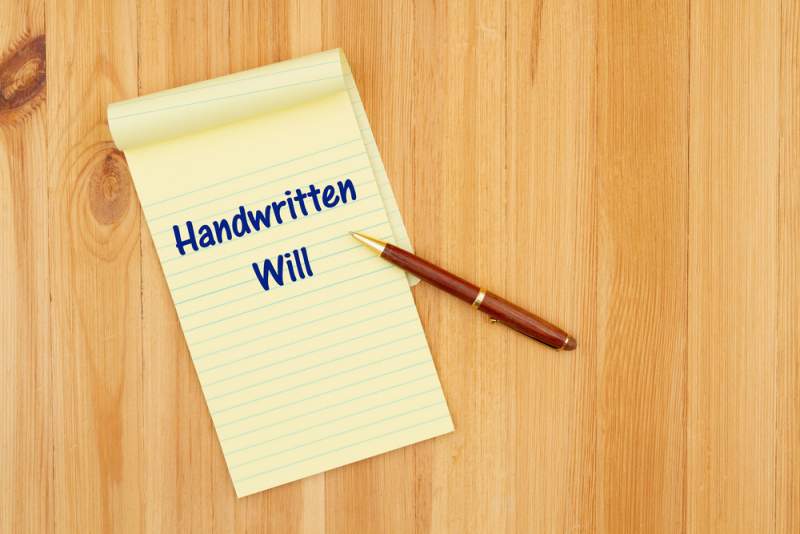Contents
Is A Handwritten Will Legal In Texas
Just about any Austin lawyer for estate planning and wills will tell you that you can actually hand write your Will on any surface and as long as it remains legible and is in your handwriting, it will be successfully proven in a probate court. In fact, there is a man that actually scribbled his Will on a wall passing all he owned to his wife and kids, and that Will was probated successfully. Handwritten Wills are also called holographic Wills and they are valid in Texas. This type of Will is as effective as a formal, typewritten Will and can be revoked at any time by the testator. What makes a holographic Will valid varies from state to state.
Holographic Will Requirements
 You have to write a holographic Will in your own handwriting and then sign and date it. You can hand write your holographic Will on stationary or on anything that cannot obscure what you have written. You as the testator (person drafting the Will) must have Testamentary capacity (be of sound mind) while drafting the Will. The testator must also have Testamentary Intent or must have the intention to write a Will for the purpose of distributing property after the testator dies. Unlike formal or typewritten Wills, you do not need two witnesses to sign the Will, and you do not need to sign the Will in someone’s presence.
You have to write a holographic Will in your own handwriting and then sign and date it. You can hand write your holographic Will on stationary or on anything that cannot obscure what you have written. You as the testator (person drafting the Will) must have Testamentary capacity (be of sound mind) while drafting the Will. The testator must also have Testamentary Intent or must have the intention to write a Will for the purpose of distributing property after the testator dies. Unlike formal or typewritten Wills, you do not need two witnesses to sign the Will, and you do not need to sign the Will in someone’s presence.
Problems With Holographic Wills
Most of the time people draft holographic Wills in emergency situations as they wait to draft a formal, typewritten Will. For example, someone may write a holographic Will when the person is going for a major surgery and is afraid that they may not survive the surgery. However, relying on a holographic Will as the primary estate planning tool presents a lot of risks. Some of the common mistakes people make while drafting holographic Wills include:
- Illegible writing: Even if the Will is in your handwriting it may still cause issues if your handwriting is not legible or is not clear enough to read. An illegible Will is difficult to interpret.
- Problems with witnesses: Witnesses will be needed to verify that the handwriting in the Will is the handwriting of the deceased. They will also need to verify that the testator was of sound mind when the testator drafted the Will.
- Vague language: A testator is likely to use ambiguous or vague language that can be interpreted in multiple ways. This can cause disagreements among heirs or beneficiaries that could result in someone contesting the Will.
- Lack of provisions: A person with no knowledge of the provisions that are often contained in typical Wills is likely to leave most of them out. For example, a testator may leave out a testamentary trust or may forget to name a guardian for minor children.
All these mistakes can lead to the Will being contested which means heirs are going to have to hire lawyers to help them. A court may also declare the Will invalid if it has too many mistakes. If the will is invalid, the Texas intestate laws will be used to distribute the assets.
